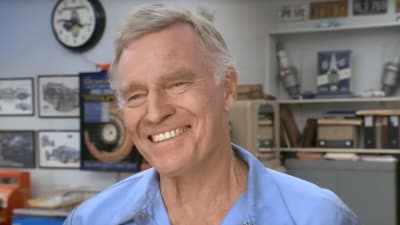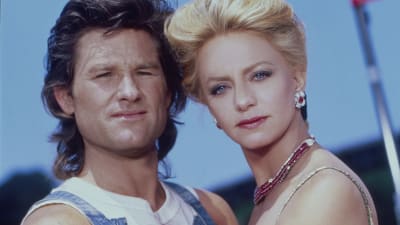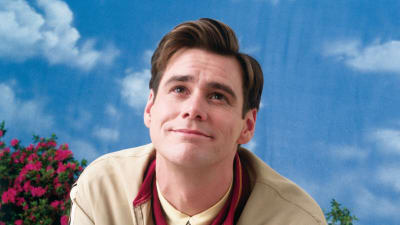- Home
- Quizzes
- My Quiz Activity
- Newsletters
- MY FAVORITES
- Add Sports/Teams
- SPORTS
-
NFL
- NFL Home
- Arizona Cardinals
- Atlanta Falcons
- Baltimore Ravens
- Buffalo Bills
- Carolina Panthers
- Chicago Bears
- Cincinnati Bengals
- Cleveland Browns
- Dallas Cowboys
- Denver Broncos
- Detroit Lions
- Green Bay Packers
- Houston Texans
- Indianapolis Colts
- Jacksonville Jaguars
- Kansas City Chiefs
- Las Vegas Raiders
- Los Angeles Chargers
- Los Angeles Rams
- Miami Dolphins
- Minnesota Vikings
- New England Patriots
- New Orleans Saints
- New York Jets
- New York Giants
- Philadelphia Eagles
- Pittsburgh Steelers
- San Francisco 49ers
- Seattle Seahawks
- Tampa Bay Buccaneers
- Tennessee Titans
- Washington Commanders
-
MLB
- MLB Home
- Athletics
- Arizona Diamondbacks
- Atlanta Braves
- Baltimore Orioles
- Boston Red Sox
- Chicago White Sox
- Chicago Cubs
- Cincinnati Reds
- Cleveland Guardians
- Colorado Rockies
- Detroit Tigers
- Houston Astros
- Kansas City Royals
- Los Angeles Angels
- Los Angeles Dodgers
- Miami Marlins
- Milwaukee Brewers
- Minnesota Twins
- New York Yankees
- New York Mets
- Philadelphia Phillies
- Pittsburgh Pirates
- San Diego Padres
- San Francisco Giants
- Seattle Mariners
- St. Louis Cardinals
- Tampa Bay Rays
- Texas Rangers
- Toronto Blue Jays
- Washington Nationals
-
NBA
- NBA Home
- Atlanta Hawks
- Boston Celtics
- Brooklyn Nets
- Charlotte Hornets
- Chicago Bulls
- Cleveland Cavaliers
- Dallas Mavericks
- Denver Nuggets
- Detroit Pistons
- Golden State Warriors
- Houston Rockets
- Indiana Pacers
- Los Angeles Clippers
- Los Angeles Lakers
- Memphis Grizzlies
- Miami Heat
- Milwaukee Bucks
- Minnesota Timberwolves
- New Orleans Pelicans
- New York Knicks
- Oklahoma City Thunder
- Orlando Magic
- Philadelphia 76ers
- Phoenix Suns
- Portland Trail Blazers
- Sacramento Kings
- San Antonio Spurs
- Toronto Raptors
- Utah Jazz
- Washington Wizards
-
NHL
- NHL Home
- Anaheim Ducks
- Boston Bruins
- Buffalo Sabres
- Calgary Flames
- Carolina Hurricanes
- Chicago Blackhawks
- Colorado Avalanche
- Columbus Blue Jackets
- Dallas Stars
- Detroit Red Wings
- Edmonton Oilers
- Florida Panthers
- Los Angeles Kings
- Minnesota Wild
- Montreal Canadiens
- Nashville Predators
- New Jersey Devils
- New York Islanders
- New York Rangers
- Ottawa Senators
- Philadelphia Flyers
- Pittsburgh Penguins
- San Jose Sharks
- Seattle Kraken
- St. Louis Blues
- Tampa Bay Lightning
- Toronto Maple Leafs
- Utah Hockey Club
- Vancouver Canucks
- Vegas Golden Knights
- Washington Capitals
- Winnipeg Jets
- NCAAF
- NCAAM
- Olympics
- Boxing
- Entertainment
- Lifestyle
- Golf
- MMA
- Soccer
- Tennis
- Wrestling
- Sports Betting
- More Sports
- RESOURCES
- My Account
- YB on Facebook
- YB on Twitter
- YB on Flipboard
- Contact Us
- Privacy Policy
- Terms of Service

The ultimate Thom Yorke playlist
On Oct. 7, 1968, Thom Yorke was born into existence, and little did the young Northamptonshirer with the slightly paralyzed left eye know the impact he would soon have on the entirety of rock music. With his band, Radiohead (along with a variety of other side-projects and one-offs), Yorke would become one of the most important frontmen in modern rock history, with his songs about paranoia and technological alienation proving relevant and impactful in an increasingly connected age. The title of "Best Living Rock Band" has truly been earned but was ultimately shunned by the band itself, shying away from its early pop successes and focusing more on delivering songs to the listeners with as few middlemen as possible outside the record label system — a stance that would earn some detractors but legions of supporters.
Some of Radiohead's albums are considered the best of all time, and its live shows are nothing short of legendary. So to help celebrate Thom turning the big 5-0, we've come up with the ultimate Thom Yorke playlist, cherry-picking fan favorites and wonderful one-offs from his time with Radiohead, his solo adventures and his many wonderful collaborations and duets. We won't leave you high and dry with this one; in fact, by the end, you'll end up feeling fitter, happier and more productive.
"Creep" [Radiohead] (1992)
!["Creep" [Radiohead] (1992)](http://res.cloudinary.com/ybmedia/image/upload/c_crop,h_1841,w_2000,x_0,y_0/c_scale,f_auto,q_auto,w_700/v1/m/9/7/97ee7966ad901a1d0e96029d3a9543650041379d/GettyImages-73250364.jpg)
The group's first single — which ended up being a massive alternative-rock success and something it would later resent — almost never happened. The group jokingly referred to it as its "Scott Walker song" in the studio, which the producers thought meant was a cover. It almost didn't make the album, to say nothing of that early guitar start on the chorus (which was accidental). The end result is the same though: a bleak, fatalistic song about self-loathing that has one of the catchiest choruses you've ever heard.
"Pop is Dead" [Radiohead] (1993)
!["Pop is Dead" [Radiohead] (1993)](http://res.cloudinary.com/ybmedia/image/upload/c_crop,h_1318,w_2000,x_0,y_0/c_scale,f_auto,q_auto,w_700/v1/m/1/f/1f2acc384df6088d23a81b8722c4adca5f11d2dc/GettyImages-85359391.jpg)
A non-album single from the band's early era, this delightfully odd little one-off is almost like glimpsing at the band in an alternate universe — one where it entered in the Britpop sweepstakes and was running neck-and-neck with the likes of Blur and Pulp. Thankfully, that didn't happen, but it's rare we get to see Yorke and Co. indulge in their pop instincts so explicitly. The band has all but disowned the song since then, but a fascinating document it remains.
"Blow Out" [Radiohead] (1993)
!["Blow Out" [Radiohead] (1993)](http://res.cloudinary.com/ybmedia/image/upload/c_crop,h_1781,w_2000,x_0,y_0/c_scale,f_auto,q_auto,w_700/v1/m/d/8/d8420355856d82219c36e804a3233a80f628fe02/GettyImages-73382239.jpg)
While Radiohead's 1993 debut album, "Pablo Honey," remains a hotly debated topic among fans (especially when talking about, "What is the worst Radiohead album?"), there are moments, hints, and promises strewn throughout its tracklist. Most promising of all about the band's future direction is the rather epic little closer, "Blow Out," which mixes jazzy chords with a prog-rock sense of ascension, ending up on the harder rocking end of early Genesis. If "Pop is Dead" hinted at paths Yorke wasn't gonna go down, "Blow Out" was a giant arrow pointing at the group's incredible future.
"Lewis (Mistreated)" [Radiohead] (1994)
!["Lewis (Mistreated)" [Radiohead] (1994)](http://res.cloudinary.com/ybmedia/image/upload/c_crop,h_1321,w_2000,x_0,y_0/c_scale,f_auto,q_auto,w_700/v1/m/a/2/a2eaac0cc8aab9332892a95084119f8432cb3a22/GettyImages-765472783.jpg)
Probably Radiohead's last experiment with pure pop-rock, the 1994 "My Iron Lung" EP pre-dated the group's landmark sophomore outing, "The Bends," by about six months and featured a fascinatingly awkward phase between the radio-friendly alternative sound of the debut and the quantum leap of songwriting maturity it took with "The Bends." Here, the band vamps on a quality upbeat guitar lick and rides that sound straight through with a reckless pop abandon we wouldn't really see from Radiohead again.
"High & Dry" [Radiohead] (1995)
!["High & Dry" [Radiohead] (1995)](http://res.cloudinary.com/ybmedia/image/upload/c_crop,h_1366,w_2000,x_0,y_0/c_scale,f_auto,q_auto,w_700/v1/m/1/4/142c54949a86acb2a9bd2dad9934ad8c35494927/GettyImages-528816119.jpg)
The first true ballad that Radiohead tried was "Thinking About You" on its debut album, and it was a song about masturbation. Here, with aching guitar lines, minimalist percussion and noticeably obtuse lyrics, the band achieves an emotional catharsis that wasn't hinted at on its debut album at all. Yorke has somewhat dismissed the song in the years that have followed, but it's still an undeniable fan favorite and one of the absolute highlights of "The Bends."
"Just" [Radiohead] (1995)
!["Just" [Radiohead] (1995)](http://res.cloudinary.com/ybmedia/image/upload/c_crop,h_1333,w_2000,x_0,y_0/c_scale,f_auto,q_auto,w_700/v1/m/1/5/15a9c9c97639a599e92f4ecf50892ca757124753/GettyImages-1034999858.jpg)
"The Bends" is so good that we feel bad trying to whittle it down to highlights. From the languid and biting sounds of "Street Spirit (Fade Out)" to the dorm room poetry of "Black Star" and the fantastic tape-warped experiment that is the opener, "Planet Telex," the band could've ended it after this record and still garnered classic status. Yet the propulsive, immediate rock stunner that is "Just" is still an incredible go-to, turning the self-flagellation of the debut into something a bit more scathing and pointed. Plus, it's coupled with arguably its greatest music video, involving one man's refusal to move from a city sidewalk and everyone wondering why (and, unfortunately, finding out).
"Paranoid Android" [Radiohead] (1997)
!["Paranoid Android" [Radiohead] (1997)](http://res.cloudinary.com/ybmedia/image/upload/c_crop,h_1385,w_2000,x_0,y_0/c_scale,f_auto,q_auto,w_700/v1/m/a/9/a9bf11eda8826e8ecb1ff5776aac20d884ec60af/GettyImages-80530629.jpg)
It's unmistakably one of the proggiest songs to ever hit the U.K. top five, but "Paranoid Android" serves as the indelible abstract that is the band's postmodern thesis statement of its third album, "OK Computer." A suite delivered without any pretension (OK, maybe just a bit), this dark slice of alienated rock catharsis starts with a minor-key acoustic guitar melody before unleashing some fire-breathing electric guitars and then seguing into a choir-like closing phase. It feels like an album's worth of ideas crammed into a single song, but these six minutes are more compelling than some bands' entire careers.
"Let Down" [Radiohead] (1997)
!["Let Down" [Radiohead] (1997)](http://res.cloudinary.com/ybmedia/image/upload/c_crop,h_1382,w_2000,x_0,y_0/c_scale,f_auto,q_auto,w_700/v1/m/5/3/53d45b85e14bcf1c089267896788643c17e515f1/GettyImages-567221297.jpg)
While Thom Yorke and his merry men walked further and further away from the pop-rock sounds of their debut as time went on, that isn't to say that Yorke abandoned the idea of having a great pop melody in his songs. "Let Down" might have one of the band's sweetest guitar hooks, given the right amount of propulsion but never overdone: This is about as straightforward as the band would be for the next few years. Don't think it too sweet though: The lyrics literally say, "Don't get sentimental / It always ends up drivel."
"No Surprises" [Radiohead] (1997)
!["No Surprises" [Radiohead] (1997)](http://res.cloudinary.com/ybmedia/image/upload/c_crop,h_1120,w_1656,x_0,y_0/c_scale,f_auto,q_auto,w_700/v1/m/6/6/660e3183aefb0e5ba190627da7d0878474602246/GettyImages-97572642.jpg)
In many ways, "No Surprises" makes for a kind of dystopian lullaby for the band, riding a slow and gentle guitar line while Thom Yorke coos about conformity and taking "a handshake of carbon monoxide." It's a sweet melody with a depressing worldview about wanting to be in a box and not disturbed by outside forces — and it makes for one of the band's all-time classic numbers.
"Ladytron" [The Venus in Furs] (1998)
!["Ladytron" [The Venus in Furs] (1998)](http://res.cloudinary.com/ybmedia/image/upload/c_crop,h_1305,w_1946,x_0,y_0/c_scale,f_auto,q_auto,w_700/v1/m/2/3/23fb2205a96054034e5e54aabeeca973332f791f/GettyImages-51657039.jpg)
For the soundtrack to the 1998 Todd Haynes glam-rock feature, "Velvet Goldmine," several new songs were written and quite a few Roxy Music numbers were covered. In fact, the band covering the group's iconic "Ladytron" features Yorke and Radiohead bandmate Johnny Greenwood, Suede's Bernard Butler and even Andy Mackay of Roxy Music. All the covers are fun and highlight Yorke in a goofier, looser mood than what we're used to. Absolutely worth a listen.
"Rabbit in Your Headlights" [UNKLE ft. Thom Yorke] (1998)
!["Rabbit in Your Headlights" [UNKLE ft. Thom Yorke] (1998)](http://res.cloudinary.com/ybmedia/image/upload/c_crop,h_1329,w_2000,x_0,y_0/c_scale,f_auto,q_auto,w_700/v1/m/2/a/2a6ca019bc839078a7af2a1ffc097de27613ac7e/sipa_10315370.jpg)
Back in 1998, James Lavelle and DJ Shadow joined forces under the name, UNKLE, putting out a debut album that featured a who's who of British rock talent, ranging from The Verve's Richard Ashcroft to then-up-and-comer Badly Drawn Boy to Stone Roses frontman, Ian Brown. Yet highlighted above them all was this stark, moody piano ballad featuring original words and vocals from Yorke. The minor-key number was aided by an eye-catching music video directed by auteur filmmaker Jonathan Glazer.
"Palo Alto" [Radiohead] (1998)
!["Palo Alto" [Radiohead] (1998)](http://res.cloudinary.com/ybmedia/image/upload/c_crop,h_1329,w_2000,x_0,y_0/c_scale,f_auto,q_auto,w_700/v1/m/e/6/e63e6ed01d54b241978e318aa8595dd6c6436635/sipa_10315323.jpg)
Released as part of the rare "Airbag / How Am I Driving?" EP in 1998 and later added to the "OKNOTOK" box set released in 2017, this B-side to "No Surprises" proves almost antithetical to the "OK Computer" thesis as a whole, providing a catchy chorus and crunching guitars for an album so obsessed with elegant and brooding catharsis. It would've stood out like a sore thumb on "OK Computer" proper, but shows that even amid all the doom and gloom of this era, the band still managed to find time to have fun.
"I've Seen It All" [Bjork ft. Thom Yorke] (2000)
!["I've Seen It All" [Bjork ft. Thom Yorke] (2000)](http://res.cloudinary.com/ybmedia/image/upload/c_crop,h_720,w_1280,x_0,y_0/c_scale,f_auto,q_auto,w_700/v1/m/d/8/d86928763d6683a9483454a194abbc95c70d12d9/seen-bjork-ft-thom-yorke-2000.jpg)
Bjork's movie musical, "Dancer in the Dark," is a brutal, pastoral drama about small-town hopes and dreams and the cruel people who can ruin them in an instant. The film may have been bleak, but its escapist musical numbers were a thing to behold. Chief among them was this gorgeous duet with Yorke, the two trading lines about one person trying to persuade the other love to see the world and the partner shooting down each and every idea. It's a bittersweet melody built on a chugging train sound, and it even ended up netting Bjork an Oscar nomination for Best Original Song.
"The Mess We're In" [PJ Harvey ft. Thom Yorke] (2000)
!["The Mess We're In" [PJ Harvey ft. Thom Yorke] (2000)](http://res.cloudinary.com/ybmedia/image/upload/c_crop,h_124,w_200,x_0,y_0/c_scale,f_auto,q_auto,w_700/v1/m/1/2/128bf29a193d93ad1324ee494ceb19663d552ea9/sipa_18801470.jpg)
PJ Harvey's sound and style have changed with such sweet grace before our eyes, going from gritty lo-fi rocker to pastoral folk experimentalist so gradually that one might not believe this is the same artist who put out both "Rid of Me" and "Let England Shake." Yet for her Mercury Music Prize-winning record, "Stories from the City, Stories from the City," she included this stark and dryly recorded duet with Yorke about (yes) a messy relationship that might be headed to its end. The two serve as lovely vocal counterpoints to each other, at one point trying to outpace each other's call-and-response lyrics to a delightfully delirious effect.
"Everything in Its Right Place" [Radiohead] (2000)
!["Everything in Its Right Place" [Radiohead] (2000)](http://res.cloudinary.com/ybmedia/image/upload/c_crop,h_1152,w_1728,x_0,y_0/c_scale,f_auto,q_auto,w_700/v1/m/5/c/5c73343e71181b081913e2f0a9a6de0dd0fa2500/GettyImages-1006597482.jpg)
No list talking about Thom Yorke, Radiohead, landmark rock albums or even the greatest albums of all time would be complete without talking about the striking mystery that is "Kid A," Radiohead's fourth album proper. Ditching guitars almost entirely, "Kid A" opened with this commanding statement, as pounding keyboards and weird background electronic squiggles let listeners immediately know that this wasn't the same Radiohead of yore. Unmistakably one of the greatest album openers of our generation.
"Optimistic" [Radiohead] (2000)
!["Optimistic" [Radiohead] (2000)](http://res.cloudinary.com/ybmedia/image/upload/c_crop,h_1471,w_2000,x_0,y_0/c_scale,f_auto,q_auto,w_700/v1/m/0/3/03581442cb82b3d31035d9686889b39d91b4fdbd/GettyImages-91143866.jpg)
Synthesizing a diet of Warp Records albums with the band's songwriting aesthetic, "Kid A" has many highlights due to the fact that no two songs sound even remotely the same. It's hard to single out just one other song from this tracklist, and as much as a "gimme" as it is, the winding guitar arpeggio that is "Optimistic" serves as a swirling, almost shoegaze-friendly escape for a record littered with atmospheric detours and languid melodies. Still, it doesn't sound even remotely out of place with the rest of the record.
"Packt Like Sardines in a Crushd Tin Box" [Radiohead] (2001)
!["Packt Like Sardines in a Crushd Tin Box" [Radiohead] (2001)](http://res.cloudinary.com/ybmedia/image/upload/c_crop,h_1324,w_2000,x_0,y_0/c_scale,f_auto,q_auto,w_700/v1/m/1/e/1e5dcf1046a2acc87c8d20a83453d070e03f7a16/GettyImages-80844809.jpg)
Made during the same sessions as "Kid A", "Amnesiac has been unfairly dismissed by some as a lesser Radiohead album, relegating it to the category of "Kid A's leftovers" and little more. Such a shame that move is, as this album is even weirder and more experimental than its older brother. Opener "Packt" plays such a part with incredible vigor, using the most minimal of IDM beats to create a twisting keyboard number that shimmers one minute, turns into an earworm the next and gets atonal for a bit after that. It's unlike any other song of this era, and we're all the better for it.
"I Might Be Wrong" [Radiohead] (2001)
!["I Might Be Wrong" [Radiohead] (2001)](http://res.cloudinary.com/ybmedia/image/upload/c_crop,h_1312,w_2000,x_0,y_0/c_scale,f_auto,q_auto,w_700/v1/m/4/d/4d9deb2e076d9fcec2e9e7dd0a3cb23bb03c615c/GettyImages-84843449.jpg)
While guitars were "back" with "Amnesiac," few were expecting the group to experiment with Smiths-style numbers like "Knives Out" or the desert sidewinder that was the single, "I Might Be Wrong," featuring a dry bassline that almost borders on funky. An underappreciated highlight.
"2 + 2 = 5" [Radiohead] (2003)
!["2 + 2 = 5" [Radiohead] (2003)](http://res.cloudinary.com/ybmedia/image/upload/c_crop,h_1363,w_2000,x_0,y_0/c_scale,f_auto,q_auto,w_700/v1/m/e/0/e087d7bc66b7aa8a0ced25e97554a311919def69/sipa_16671909.jpg)
Supposedly the opening static noise you hear on "2 + 2 = 5" — the first song off the group's political sixth record, "Hail to the Thief" — was the sound of the very first guitar plugin from the very first day of recording with longtime producer Nigel Godrich. The result? One of the must thundering guitar crash-ins the group has ever laid to tape. Do yourself a favor: Catch them when they do this live, and watch the crowd get whipped up into an instant frenzy.
"There There" [Radiohead] (2003)
!["There There" [Radiohead] (2003)](http://res.cloudinary.com/ybmedia/image/upload/c_crop,h_1303,w_2000,x_0,y_0/c_scale,f_auto,q_auto,w_700/v1/m/a/e/ae6fa55bc988ad867fd378a7ab6c466756b1ebf4/GettyImages-566790511.jpg)
Supposedly Thom Yorke cried when he heard the final mix of what would end up being the lead single to "Hail to the Thief" — and it's easy to see why. Though anchored by a shimmying guitar line, the star of this doubtful anthem is the percussion, with the band working on a deep set of clanging, clattering drum moves to drive home that incredible chorus: "Just 'cos you feel it / Doesn't mean it's there." Brutal and beautiful in equal measure.
"Gagging Order" [Radiohead] (2004)
!["Gagging Order" [Radiohead] (2004)](http://res.cloudinary.com/ybmedia/image/upload/c_crop,h_1565,w_2000,x_0,y_0/c_scale,f_auto,q_auto,w_700/v1/m/7/6/76188a4668c58a77f720f93260adcc771e502aef/GettyImages-105142388.jpg)
While reception to the band's remix-heavy "Com Lag" EP (released shortly after "Hail to the Thief") was decidedly mixed, there was one astonishing highlight tucked in near the end, and it was this aching, gorgeous acoustic ballad called "Gagging Order." The arpeggiated acoustic guitar-plucking mixes with Yorke's aching voice to craft one of the band's finest and most underappreciated classics.
"The Eraser" [Thom Yorke] (2006)
!["The Eraser" [Thom Yorke] (2006)](http://res.cloudinary.com/ybmedia/image/upload/c_crop,h_1333,w_2000,x_0,y_0/c_scale,f_auto,q_auto,w_700/v1/m/3/3/33e07df102e202e57d72c214bb6ebd9bd72cc77a/GettyImages-78537833.jpg)
Perhaps it was inevitable that Thom Yorke would go solo, and the fact that it continued Yorke and producer Nigel Godrich's experiments with microbeats should've struck no one as a surprise. "The Eraser" was the album, and the title track, with its plaintive but purposeful piano pounds, proved so catchy and immediate that Lupe Fiasco, Kanye West, and Pharrell interpolated it for a mixtape track called "Us Placers."
"Black Swan" [Thom Yorke] (2006)
!["Black Swan" [Thom Yorke] (2006)](http://res.cloudinary.com/ybmedia/image/upload/c_crop,h_1329,w_2000,x_0,y_0/c_scale,f_auto,q_auto,w_700/v1/m/4/4/446e4cd6ec7fddf2e868b1ac3a834375fb51d9b8/sipa_10315337.jpg)
While Yorke's love of IDM and minimalist bits might be a bit too much for some (we know those Radiohead rock purists do exist), those looking for an entry point into Yorke's first true-blue solo venture need look no further than "Black Swan," which borrowed some guitar lines straight of "Amnesiac" and set them to a minimalist beat and some of his most straightforward lyrics to date. (Hint: It involves him dropping the f-word a lot.)
"The White Flash" [Modeselektor ft. Thom Yorke] (2007)
!["The White Flash" [Modeselektor ft. Thom Yorke] (2007)](http://res.cloudinary.com/ybmedia/image/upload/c_crop,h_1333,w_2000,x_0,y_0/c_scale,f_auto,q_auto,w_700/v1/m/7/6/76ef88d3b3c9e5d552fed18164cda65d6a1e4bf3/GettyImages-926610884.jpg)
Being in love with electronic music as much as he was, it was no surprise that Yorke would take a great interest in the artists remixing his works every now and then, with Modeselektor's take on his solo track "Skip Divided" drawing particular praise. Yorke returned the favor to the electronic duo, giving his vocals to an outstanding mid-tempo number off their sophomore effort, "Happy Birthday!."
"Bodysnatchers" [Radiohead] (2008)
!["Bodysnatchers" [Radiohead] (2008)](http://res.cloudinary.com/ybmedia/image/upload/c_crop,h_1341,w_2000,x_0,y_0/c_scale,f_auto,q_auto,w_700/v1/m/1/5/1514953f16a3a328f225788e7cf4f4c9ae30df7c/sipa_15621330.jpg)
When Radiohead shook the music industry to its core by releasing its album "In Rainbows" via a pay-what-you-want model, countless think pieces came out about the band's daring, boldness and audacity. The only thing more striking? The music that the people were buying. "In Rainbows" is considered another masterwork from the group, and the thundering "Bodysnatchers" shows that when it comes to drafting fast-paced brooding rock stunners, the band hasn't even remotely lost its touch.
"All I Need" [Radiohead] (2008)
!["All I Need" [Radiohead] (2008)](http://res.cloudinary.com/ybmedia/image/upload/c_crop,h_1331,w_2000,x_0,y_0/c_scale,f_auto,q_auto,w_700/v1/m/3/8/3827be795617fdc3b31b60d7d90ce11f70df1e32/sipa_17668884.jpg)
In many ways, "All I Need" is a love song but only in the sense that it's about romance and devotion — but with a very Radiohead worldview of it. "I'm an animal / Trapped in your hot car / I am all the days / That you choose to ignore." It's pleading and defeated but married to one gorgeous synth progression and some of the lushest production the band has ever treated us to. Stellar.
"Hearing Damage" [Thom Yorke] (2009)
!["Hearing Damage" [Thom Yorke] (2009)](http://res.cloudinary.com/ybmedia/image/upload/c_crop,h_1333,w_2000,x_0,y_0/c_scale,f_auto,q_auto,w_700/v1/m/7/3/73f86c99e9095fc76807b777d792062442d2cdac/sipa_17675926.jpg)
Who would've guessed that in 2009, we would find brand new Thom Yorke music on, of all places, the soundtrack to "The Twilight Saga: New Moon." Yet as laughable and terrible as the movies are, the soundtracks (supervised by the impeccable Alexandra Patsavas) have proved to be alt-pop staples, ushering the sounds of St. Vincent, Passion Pit, Iron & Wine and yes, even Yorke into the mainstream. Yorke's buzzy, paranoid contribution here is a genuine highlight.
"... And the World Laughs With You" [Flying Lotus ft. Thom Yorke] (2010)
![And the World Laughs With You" [Flying Lotus ft. Thom Yorke] (2010)](http://res.cloudinary.com/ybmedia/image/upload/c_crop,h_1335,w_2000,x_0,y_0/c_scale,f_auto,q_auto,w_700/v1/m/3/0/3053e80700ff0c597ecd820ed34dc131b129e363/sipa_15907793.jpg)
Flying Lotus' 2010 breakthrough album, "Cosmogramma," mixed hip-hop elements with electronic beatscapes, creating a sort of postapocalyptic pop soundtrack that tastemakers the world over took notice of. Yorke can be counted in such elite circles, and he worked with mastermind Steven Ellison on a song that was the kind of paranoid digital fever dream we've come to respect out of Yorke's aesthetic.
"Bloom" [Radiohead] (2011)
!["Bloom" [Radiohead] (2011)](http://res.cloudinary.com/ybmedia/image/upload/c_crop,h_1356,w_2000,x_0,y_0/c_scale,f_auto,q_auto,w_700/v1/m/3/1/31a073e969709c429eef97d325d1248d803cf13b/sipa_20044661.jpg)
For some, "The King of Limbs" is the more beat- and sample-heavy album in Radiohead's oeuvre and is a rare misstep for a group so well-known for consistently bringing its best melodies to smart, considered albums. However, there is a subset of fans who love this record, and the moody, expansive and stuttering "Bloom" serves as a hell of an album opener, preparing fans for the unexpected while riding the most plaintive and casual of basslines — a rarity in the band's catalog.
"Morning Mr. Magpie" [Radiohead] (2011)
!["Morning Mr. Magpie" [Radiohead] (2011)](http://res.cloudinary.com/ybmedia/image/upload/c_crop,h_1333,w_2000,x_0,y_0/c_scale,f_auto,q_auto,w_700/v1/m/4/6/46bef85b199b3f6c1f4934b63b995a720fdc4392/sipa_20520037.jpg)
Long a live staple before finally being committed to tape, "Morning Mr. Magpie" rides some rapid strumming and looping guitar and basslines that prove to be more buildup than release. It's a fever dream of a groove — one that lulls you in with its immediacy before Yorke's voice whispers accusations at a magic-stealing magpie. It's weird, winding and a low-key classic in its own right.
"The Butcher" [Radiohead] (2011)
!["The Butcher" [Radiohead] (2011)](http://res.cloudinary.com/ybmedia/image/upload/c_crop,h_1333,w_2000,x_0,y_0/c_scale,f_auto,q_auto,w_700/v1/m/9/b/9bb4bbd9d77c31e6598c8cd1cc4c30ba6520a9d5/USATSI_10013358_168384326_lowres.jpg)
As divisive as "The King of Limbs" is among fans to this day, Radiohead still had a special treat for fans shortly after its release: a double A-side single just in time for Record Store Day. "Supercollider" is no doubt a highlight, but the moodier, clattering brood that is "The Butcher" sounds more like a song from "Amnesiac" that wandered a bit too far into the new decade (but is all the better for its journey).
"Before Your Very Eyes..." [Atoms for Peace] (2013)
!["Before Your Very Eyes..." [Atoms for Peace] (2013)](http://res.cloudinary.com/ybmedia/image/upload/c_crop,h_1360,w_2000,x_0,y_0/c_scale,f_auto,q_auto,w_700/v1/m/3/f/3f53107e162df26a25eef1d79dba31707367b349/sipa_20519831.jpg)
While Thom Yorke's band outside of Radiohead (which featured Flea on bass) has put out only one album, that disc ended up getting quite the mixed critical reception. However, its dance-y, worldbeat rhythms made it a project that wouldn't have fit in Radiohead's sonic universe. "Ingenue" was the eye-catching lead single from "Amok," but it was the follow-up, "Before Your Very Eyes," which shows the band's sound evolving from spiky guitar plucks to keyboard beatscapes over the course of its daring five minutes.
"Burn the Witch" [Radiohead] (2016)
!["Burn the Witch" [Radiohead] (2016)](http://res.cloudinary.com/ybmedia/image/upload/c_crop,h_1319,w_2000,x_0,y_0/c_scale,f_auto,q_auto,w_700/v1/m/3/3/33a941e3b23f4df3796893976738c900ff0391fa/sipa_20615283.jpg)
Between Radiohead hiatuses, guitarist Johnny Greenwood tried his hand at composing film scores, having already won over the film industry with his bravura turns at Paul Thomas Anderson features, ranging from "There Will Be Blood" to "Phantom Thread." His prowess with orchestration shines through on Radiohead's "A Moon Shaped Pool," and the lead single melds sawing strings with Yorke's pained falsetto, resulting in a track that, in Yorke's words, serves as "a low-flying panic attack."
"The Numbers" [Radiohead] (2016)
!["The Numbers" [Radiohead] (2016)](http://res.cloudinary.com/ybmedia/image/upload/c_crop,h_1333,w_2000,x_0,y_0/c_scale,f_auto,q_auto,w_700/v1/m/8/1/8107d94c423d80c405d8e297572cf07bb52b02c3/USATSI_10024784_168384326_lowres.jpg)
What's fascinating about Radiohead's career trajectory is how throughout most of its discography, they sound like Radiohead and nothing else. Sure, influences are there (see: Joy Division, Suede), but they're often tucked away, obscured by the quintet's sheer artistry. What's so distinct about "The Numbers" is how the guitar lines sound straight out of the Led Zeppelin playbook, a reference that the band chose to make explicit. It may be a simple pattern and easy nod, but goodness is it effective.
"I Promise" [Radiohead] (2018)
!["I Promise" [Radiohead] (2018)](http://res.cloudinary.com/ybmedia/image/upload/c_crop,h_1373,w_2000,x_0,y_0/c_scale,f_auto,q_auto,w_700/v1/m/a/d/ade991f4e1fd7b241327a562e82f5e8b8d88182e/sipa_20519845.jpg)
What's most incredible about Radiohead's "OK Computer" era is how many amazing songs the band created during that time that remain unheard by the music-loving masses. We covered some rarities earlier in this list, but with the 2017 "OKNOTOK" box set, a lot of old B-sides were pushed to the fore while previously unearthed works also took center stage. Chief among them was this plaintive ballad, featuring military drum taps, a simply strummed guitar and lyrics of hopeless devotion. It even borders on romantic at moments, making it a genuine rarity in the Radiohead canon.
"Suspirium" [Thom Yorke] (2018)
!["Suspirium" [Thom Yorke] (2018)](http://res.cloudinary.com/ybmedia/image/upload/c_crop,h_1333,w_2000,x_0,y_0/c_scale,f_auto,q_auto,w_700/v1/m/9/8/98cf66771048ffe8edbe3994ea700be003308d88/USATSI_10024802_168384326_lowres.jpg)
Johnny Greenwood's work as a film composer has earned him immense accolades, even netting an Oscar nomination for his work on "Phantom Thread." Yet as the years of solo albums from all of the members has proved, Radiohead is a band full of immensely talented musicians. No surprise then that Yorke would want his turn at composing a film score, and he did so with Luca Guadagnino's remake of "Suspiria." Fittingly, Yorke's almost-title track is a piano melody that is demure, lifting, paranoid and lovely all the same.
Evan Sawdey is the Interviews Editor at PopMatters and is the host of The Chartographers, a music-ranking podcast for pop music nerds. He lives in Chicago with his wonderful husband and can be found on Twitter at @SawdEye
More must-reads:
- Going places: The greatest bands named after a city, state, country or continent
- Jesse Plemons cast as Plutarch Heavensbee in 'The Hunger Games: Sunrise on the Reaping' prequel
Customize Your Newsletter
 +
+
Get the latest news and rumors, customized to your favorite sports and teams. Emailed daily. Always free!
PRIVACY POLICY EDITORIAL POLICY CONTACT US
ABOUT YARDBARKER TERMS OF SERVICE
Use of this website (including any and all parts and
components) constitutes your acceptance of these
Terms of Service and Privacy Policy.
This site is for entertainment purposes only.
There is no gambling offered on this site.
Gambling Problem? Call 1-800-Gambler.








